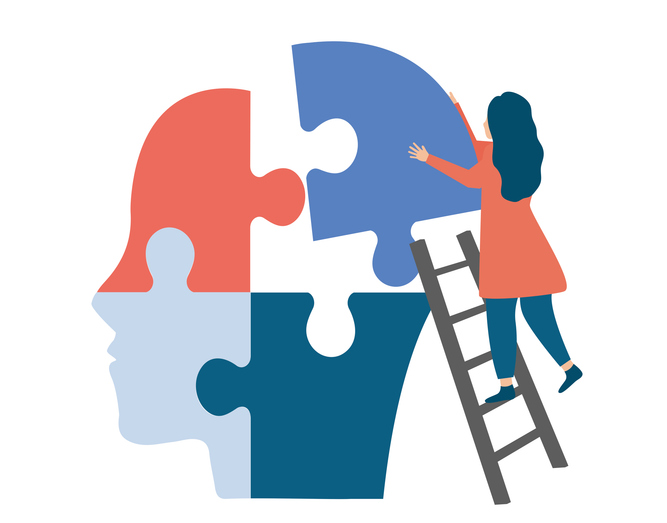When most people think about Autism Spectrum Disorder (ASD), they picture kids. But many undiagnosed adults are on the autistic spectrum too, often without even realizing it. For those of us who grew up before autism was better understood, the signs might have gone unnoticed, especially in girls. That’s because autism doesn’t have to look just one particular way, and many of today’s undiagnosed adults didn’t present with the “typical” symptoms looked for when they were children. If you’re an adult who suspects you may be on the autistic spectrum, keep reading. Learning about signs of autism in adults can be a powerful first step toward understanding yourself more deeply and finding the kind of support that actually fits.
Common Signs of Autism in Undiagnosed Adults
1. Social Challenges
Do you think of yourself as a shy person? Have you ever walked away from an interaction replaying everything you said, wondering if you came across the way you meant to? Do you want to join in on group conversations but you’re not sure how? It may be more than just “shyness.” If you struggle with reading facial expressions correctly or understanding the intent behind someone’s tone of voice, these are characteristics that many on the spectrum experience to varying degrees. It can become second nature to mask this struggle or avoid complex social situations, but actual help is out there.
2. Preferring Predictability
When plans change at the last minute, you need to quickly adapt to the new reality. That can be challenging for people on the spectrum, though it may not be an obvious sign if you are able to hold back your response and act like you’re going with the flow. That holding back is part of masking, which is a coping strategy autistic and other neurodivergent people do in order to fit in. If you feel thrown when there’s a change in routine or expectations, it’s worth paying attention to that feeling.
3. Intense Focus or Special Interests
Many adults on the spectrum have a special interest in a particular topic, though focusing on this interest may not initially seem like a sign worth noticing. If you find yourself learning absolutely everything you can about a topic and it’s more than just a casual interest, it could be worth thinking about the other signs listed here and see if any of them fit.
4. Sensory Sensitivities
Everyone gets bothered by sensory experiences sometimes, but those on the autistic spectrum can be extra sensitive. If lights seem too bright or certain textures, sounds, or smells seem to bother you more than they do others, it could be a sign of autism. Conversely, you may need to engage in certain sensory experiences in order to feel grounded, like hearing a favorite sound or touching a specific texture.
5. Stimming
Stimming refers to repetitive actions someone does in order to feel calm or to self-regulate. You may think of stimming as hand flapping or rocking, which are some of the more well-known stims in autism, but stimming can actually include a wide variety of activities. Constant hair twirling, humming, knuckle-cracking, teeth grinding, and even listening to the same song over and over again are all different stimming actions. You may not even realize you are stimming when you do these things, and stimming can be an important part of regulating emotions. It’s not something you need to stop once you notice it, but it could be an important clue to understanding some other challenges you may be struggling with.
6. A History of Feeling Like You’re “Too Much”
Have you always felt like you’re “too much” of something? Too shy, too sensitive, or too intense? Or maybe you’re all three? It can be overwhelming to feel out of step with those around you or like you need to make yourself smaller, but you’re not alone. Many autistic adults share this feeling, especially if they’ve been undiagnosed and don’t understand the full picture of why they feel this way.
Spectrum Strategies Offers Support and Guidance
If these signs feel familiar, you’re in good company. There are many undiagnosed adults who are just now recognizing signs of autism in themselves and seeking a diagnosis. It’s important to remember that neurodiversity exists along a broad spectrum, just like the human experience itself. Noticing one or several of these traits in yourself doesn’t automatically mean you’re autistic, but it might be worth looking into this further.
Speaking with a psychologist or a specialist in adult autism can provide valuable insight and help you better understand your unique needs. Autism isn’t something that needs to be “fixed”—it’s simply a different way of engaging with the world. Recognizing it can be a powerful step toward living more authentically and gaining more comfort and confidence in yourself.
At Spectrum Strategies, we’re here to support you on that journey. Whether you’re seeking guidance, resources, or practical strategies for navigating life as an autistic adult in a neurotypical world, our team is committed to helping you thrive on your terms.

